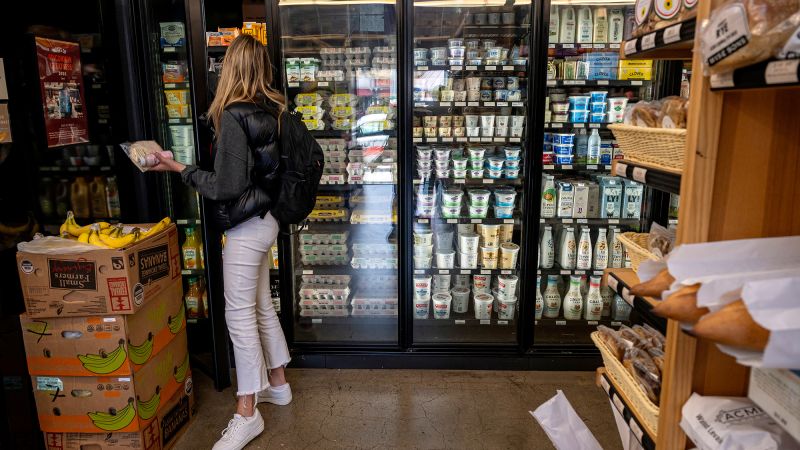In a recent report issued by the Commerce Department, it was revealed that sales at US retailers experienced a slight increase last month, amid ongoing concerns over inflation and high interest rates.
According to the report, retail sales only rose by 0.1% in May compared to the previous month. While this was an improvement from April’s decline of 0.2%, it fell short of the 0.3% gain that economists had anticipated in a FactSet poll. The figures, adjusted for seasonal variations but not inflation, highlighted a sluggish growth in consumer spending.
The data showed a decline in sales at gas stations by 2.2% in May, while purchases at furniture stores (-1.1%) and stores selling building materials and garden equipment (-0.8%) also saw a drop. On the other hand, specialty stores that sell sporting goods, books, and musical instruments experienced a significant increase of 2.8% in sales.
Despite a slight increase in retail sales over the past six months, the figures for April and March were revised lower by the Commerce Department, raising concerns about the overall health of the economy.
Economists Tim Quinlan and Shannon Seery Grein from Wells Fargo commented on the data, stating, “The May retail sales data are consistent with only a gradual moderation in consumer spending… leaving households with less means to dedicate to discretionary goods and services.”
The report also indicated that inflation, though lower than previous highs, remains elevated and interest rates are at their highest in nearly a quarter century. The Federal Reserve’s aggressive rate-hiking campaign in 2022 aimed to control rising prices, but it has put pressure on households as their savings from the pandemic era dwindle.
As the economy shows signs of slowing down, the possibility of the Fed cutting interest rates to stimulate growth becomes more likely. Lower-income Americans and now even middle-income consumers are feeling the pinch, leading retailers like Walmart, Kohl’s, and Target to report reduced spending by customers.
Despite the slowdown in retail sales, spending on travel and in-person experiences like concerts is expected to remain strong this summer. The broader consumer spending figures for May, which include services, will be released later this month.
Overall, the weak spending data in recent months suggests that the US economy may not be overheating but rather slowing down. In addition, recent economic data showing a moderation in inflation supports the case for a potential rate cut later this year by the Federal Reserve.



